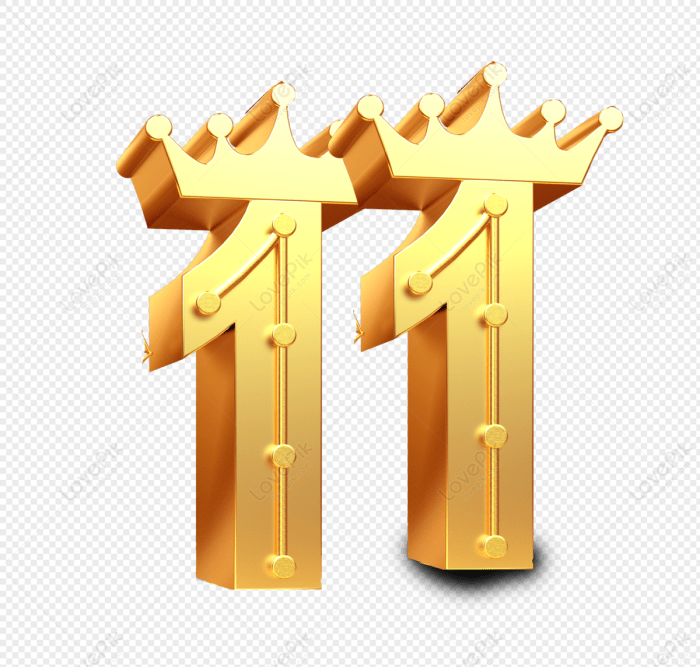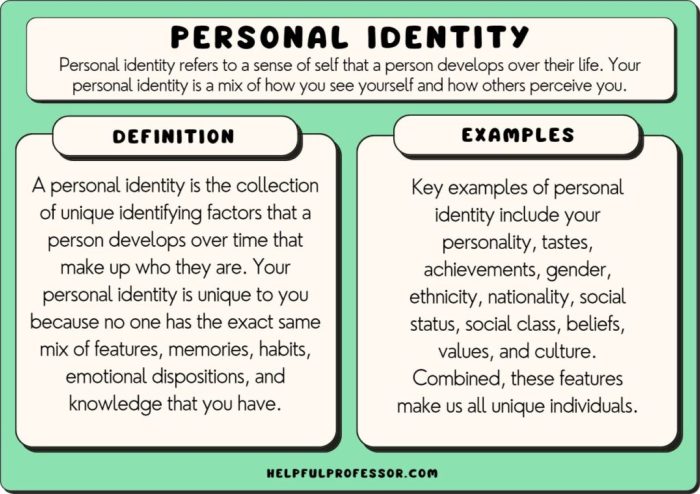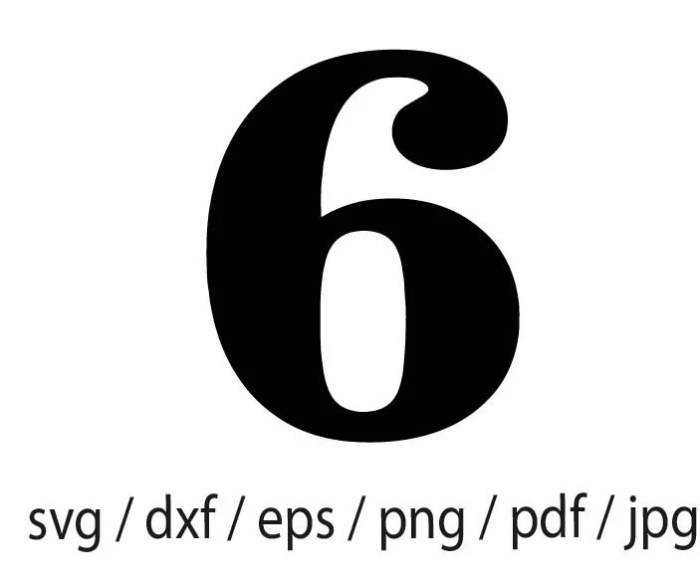What is career coaching and how you can find a good career coach? This guide dives deep into the world of career coaching, explaining what it is, the benefits, and how to find a qualified coach to help you achieve your career goals. From understanding the core principles to navigating the coaching process, we’ll equip you with the knowledge and tools to make informed decisions.
We’ll cover everything from defining career coaching and its differences from other career development methods, to exploring the various benefits it offers at different career stages. We’ll also guide you through identifying a suitable coach, understanding the coaching process, and choosing from various types of coaching. Finally, we’ll discuss essential tools and techniques, cost considerations, and strategies for maintaining momentum after coaching ends.
Let’s get started!
Defining Career Coaching
Career coaching is a personalized and collaborative process designed to empower individuals to achieve their professional aspirations. It’s more than just generic advice; it’s a structured journey focused on identifying and overcoming obstacles, maximizing strengths, and developing actionable strategies for career advancement. Effective career coaching involves a deep understanding of the individual’s unique circumstances, goals, and values, leading to a tailored plan for success.Career coaching is distinct from other career development services.
While mentoring often involves sharing experience and guidance, coaching focuses on active problem-solving and goal achievement. Counseling, on the other hand, often addresses underlying psychological or emotional issues that might impact career choices, whereas coaching primarily concentrates on practical strategies for career progression. Career coaching is about taking proactive steps toward professional fulfillment, not just understanding one’s challenges.
Key Differences Between Career Coaching, Mentoring, and Counseling
Career coaching, mentoring, and counseling, while all contributing to career development, differ significantly in their approach and focus. Coaching emphasizes practical action plans, while mentoring provides guidance and support from a more experienced professional. Counseling addresses underlying emotional or psychological factors that might affect career decisions.
- Career Coaching: Focuses on identifying and achieving specific career goals. It’s action-oriented and solution-focused, providing tools and strategies to overcome obstacles.
- Mentoring: Provides guidance and support from a more experienced professional. Mentors often share their experiences and insights, offering perspectives and advice based on their own career journeys.
- Counseling: Addresses emotional or psychological factors that might affect career choices. Counselors help individuals understand their motivations and emotional well-being, which can directly impact their career paths.
Core Principles and Values of Effective Career Coaching
Effective career coaching is built on several core principles and values. These principles ensure that the process is both supportive and results-oriented. A strong foundation of trust, respect, and active listening is crucial for fostering a collaborative and productive relationship. The focus should always remain on the client’s needs and goals, with the coach acting as a facilitator and guide.
- Client-Centered Approach: The coach prioritizes the client’s needs, goals, and values, tailoring the coaching process to meet those specific requirements. This means truly understanding the individual’s unique context.
- Collaboration and Partnership: Coaching is a collaborative process, with both the coach and the client working together to identify and implement solutions.
- Action-Oriented: The coaching process emphasizes practical strategies and actionable steps to achieve the client’s career goals. It’s not just about discussion, but about tangible outcomes.
- Confidentiality and Trust: A strong foundation of trust and confidentiality is essential for open communication and honest self-reflection.
Comparing Approaches to Career Coaching
Different approaches to career coaching cater to various needs and styles. A structured approach might be ideal for individuals with clear goals, while a more exploratory approach might be better suited for those unsure of their next steps. The choice of approach depends on the individual’s needs and preferences.
| Approach | Description | Focus | Examples |
|---|---|---|---|
| Structured Coaching | Follows a predefined framework with specific steps and timelines. | Goal achievement, action planning, and accountability. | SMART goal setting, action plans, and regular check-ins. |
| Exploratory Coaching | Focuses on self-discovery and understanding of values, interests, and skills. | Identifying strengths, interests, and exploring career options. | Values clarification, personality assessments, and brainstorming sessions. |
| Solution-Focused Coaching | Concentrates on identifying and implementing solutions to specific problems. | Overcoming obstacles, building resilience, and developing strategies. | Addressing specific challenges, developing coping mechanisms, and exploring alternative solutions. |
Benefits of Career Coaching

Career coaching isn’t just about finding a new job; it’s about unlocking your full potential and achieving a fulfilling career. It provides a structured approach to navigating the complexities of the professional world, empowering individuals to make informed decisions and reach their career aspirations. This tailored guidance can be invaluable at any stage of your career journey.Career coaching acts as a personalized roadmap, helping individuals identify their strengths and weaknesses, clarifying their values, and ultimately crafting a career path that aligns with their unique aspirations.
By fostering self-awareness and providing actionable strategies, coaching empowers individuals to take control of their professional destinies.
Identifying Strengths, Weaknesses, and Values
Understanding your strengths and weaknesses is crucial for making effective career choices. A career coach facilitates this process through targeted assessments and insightful discussions. By exploring your values, you gain clarity on what truly motivates and satisfies you in a professional setting. This self-discovery is foundational to making informed decisions that lead to a more fulfilling career.
A coach can help you pinpoint your strengths, such as exceptional communication skills or a knack for problem-solving, and identify areas needing improvement, such as time management or delegation. This knowledge allows you to leverage your strengths and develop strategies to overcome weaknesses. This process of introspection often uncovers hidden values, guiding you toward roles and industries that resonate with your core principles.
Developing a Clear Career Vision and Action Plan, What is career coaching and how you can find a good career coach
Career coaching isn’t just about identifying strengths and weaknesses; it’s about creating a tangible plan for achieving your goals. A coach works with you to define a clear career vision, outlining your long-term aspirations and short-term objectives. This vision isn’t static; it’s a dynamic roadmap that adapts as your circumstances and aspirations evolve. The action plan translates this vision into actionable steps, providing a roadmap with specific tasks, timelines, and strategies for achieving your career goals.
It helps you break down large, seemingly daunting tasks into manageable steps, fostering a sense of progress and accomplishment. A structured action plan includes specific strategies to improve skills, develop a professional network, and build confidence in pursuing career goals.
Potential Career Outcomes
Career coaching can lead to a variety of positive outcomes, depending on individual needs and goals. It’s not about a one-size-fits-all approach.
Career coaching is all about figuring out your next steps and finding the right path for your goals. A great coach can help you navigate career challenges and identify hidden opportunities. To find a good one, check out online resources and look for certifications or testimonials. This process is similar to the principles of freeing up your time, as discussed in this excellent article on 7 ways to free yourself and make the most of your time.
Ultimately, a good career coach can help you unlock your potential and reach your career aspirations.
- Improved job satisfaction:
- Higher earning potential:
- Career advancement:
- Career change:
- Increased confidence and self-awareness:
Individuals gain a deeper understanding of their career aspirations and how their current roles align with those aspirations. This clarity often leads to increased job satisfaction and a stronger sense of purpose.
By identifying strengths, weaknesses, and areas for skill development, career coaches help individuals gain the knowledge and tools needed to enhance their professional value, potentially leading to higher compensation.
A career coach can help you craft a compelling career advancement strategy, outlining the steps necessary to reach your desired position or level.
Career coaching can be a valuable tool for those considering a career change. A coach can help you identify new career paths that align with your values, skills, and interests, and create a structured plan to transition into a new role.
Through the coaching process, individuals gain a deeper understanding of their strengths, weaknesses, and values. This increased self-awareness empowers them to confidently navigate career challenges and make informed decisions.
Identifying a Good Career Coach
Finding the right career coach is crucial for maximizing the benefits of coaching. A qualified coach can provide tailored guidance and support, helping you navigate the complexities of career development and achieve your goals. This section focuses on the essential criteria for selecting a coach, outlining research methods, and highlighting the importance of establishing clear expectations.Choosing a career coach is not a random act.
It’s a strategic investment in your future. Thorough research and careful evaluation are vital to ensure you select a coach who aligns with your needs and aspirations. This process involves understanding their experience, qualifications, and coaching style to find the perfect fit.
Criteria for Selecting a Qualified Coach
A good career coach possesses a blend of skills and experience. They should have a proven track record of helping clients achieve their career goals. Look for coaches with relevant certifications or qualifications in career counseling, coaching, or a related field. Experience in the industries or roles you’re interested in can significantly enhance the value of coaching.
Ultimately, choose a coach whose style resonates with you and whom you feel comfortable working with.
Researching and Evaluating Potential Coaches
Several avenues can help you research and evaluate potential coaches. Check online directories specializing in career coaching services. Look for testimonials and reviews from previous clients to gauge the coach’s effectiveness. Networking with professionals in your field or industry can also lead to recommendations and insights into the reputation of different coaches. A comprehensive online presence, including a professional website and social media profiles, is a good sign of a coach’s dedication and professionalism.
Establishing Clear Expectations and Goals
Before committing to a coaching relationship, it’s vital to establish clear expectations and goals with a prospective coach. Openly discuss your career aspirations, desired outcomes, and specific areas you’d like support with. Clarify the coach’s approach, frequency of sessions, and the overall structure of the coaching process. This proactive step ensures that both parties are aligned and that the coaching relationship is productive and beneficial.
Having a clear understanding of the coach’s fees and payment terms is also important.
Essential Questions to Ask Potential Coaches
| Question Category | Example Questions |
|---|---|
| Qualifications & Experience | What certifications or qualifications do you hold? What is your experience in coaching clients with similar career goals to mine? |
| Coaching Style & Approach | Can you describe your coaching style and methodology? How do you typically structure coaching sessions? |
| Client Testimonials & Reviews | Can I speak to some of your previous clients? Are there any testimonials or reviews I can review? |
| Process & Expectations | What is your process for identifying goals and creating action plans? How often will we meet, and what is the duration of each session? What are your fees and payment terms? |
| Understanding Your Needs | How will you ensure that our coaching sessions are tailored to my specific needs and career goals? How do you track progress and measure success? |
This table provides a framework for crucial questions to ask potential coaches. Use these as a starting point to tailor your inquiries to your unique circumstances and goals. Thorough questioning will ensure a strong foundation for a successful coaching relationship.
The Coaching Process

Career coaching isn’t a one-size-fits-all solution. A successful coaching engagement involves a dynamic process tailored to the individual client’s needs and aspirations. It’s a collaborative journey, marked by open communication, goal setting, and actionable steps. The coach acts as a guide, helping the client navigate the complexities of their career path and identify opportunities for growth.The coaching process typically unfolds in stages, each building upon the previous one.
It’s a structured approach that encourages reflection, exploration, and ultimately, action. This process is iterative and may involve adjustments based on the client’s progress and changing circumstances.
Typical Stages of a Career Coaching Engagement
A well-structured career coaching engagement usually progresses through distinct stages. These stages aren’t rigid; they are fluid and adapt to the client’s needs and the coaching dynamic. The initial phase sets the stage for a productive partnership.
- Assessment and Goal Setting: This phase focuses on understanding the client’s current situation, including their skills, experience, interests, and career aspirations. The coach helps the client clarify their goals, identifying both short-term and long-term objectives. This includes a thorough exploration of the client’s values, strengths, and weaknesses, leading to the development of a personalized action plan. A common example involves a client wanting a promotion; the coach would help define what that promotion looks like in terms of specific responsibilities and skills required.
- Exploration and Strategy Development: The coach facilitates the exploration of different career paths and strategies aligned with the client’s goals. This might involve researching industries, exploring job roles, or evaluating skill gaps. A key element is developing practical strategies for achieving the defined objectives, incorporating realistic timelines and actionable steps. For example, if a client wants to transition into a new industry, the coach might help them identify the necessary training and networking opportunities.
- Action Planning and Implementation: The coach assists the client in creating a detailed action plan that Artikels specific steps to achieve their goals. This involves identifying resources, setting deadlines, and creating a support system. This stage emphasizes practical application and the development of tangible results. Examples include creating a resume tailored to a specific job description, practicing interview skills, or attending industry events.
- Review and Evaluation: Throughout the engagement, the coach and client regularly review progress and make adjustments to the plan as needed. Regular check-ins allow for open communication and feedback, ensuring the client stays on track. This phase focuses on continuous improvement, adapting to changing circumstances and reflecting on lessons learned. For instance, a client might re-evaluate their goals after gaining new experience or learning about a more compelling career path.
Roles and Responsibilities of the Coach
The coach plays a crucial role in guiding the client through the coaching process. Their responsibilities extend beyond simply offering advice.
- Facilitating Exploration: The coach creates a safe and supportive environment for the client to explore their options and identify their career aspirations. This includes asking thought-provoking questions and providing a non-judgmental space for reflection.
- Providing Guidance and Support: The coach offers guidance and support as the client develops their action plan and implements strategies. This involves offering resources, providing constructive feedback, and celebrating successes.
- Holding the Client Accountable: The coach helps the client stay focused and motivated by holding them accountable for their commitments and progress.
- Promoting Self-Awareness: The coach fosters self-awareness in the client, helping them understand their strengths, weaknesses, and values to make informed career choices.
Roles and Responsibilities of the Client
The client is an active participant in the coaching process. Their responsibilities are equally vital to the success of the engagement.
- Active Participation: The client must be actively involved in the process, providing honest feedback and participating in all aspects of the coaching sessions.
- Commitment and Follow-through: The client must be committed to implementing the strategies and action plans developed during the coaching sessions. This involves a willingness to work diligently and consistently toward their goals.
- Open Communication: The client needs to communicate openly and honestly with the coach, sharing their thoughts, feelings, and concerns.
- Reflection and Self-Evaluation: The client should actively reflect on their progress and evaluate their strategies to ensure they are aligned with their goals.
Setting Effective Coaching Goals
Clearly defined goals are crucial for a successful coaching engagement. A step-by-step approach to goal setting ensures that the goals are specific, measurable, achievable, relevant, and time-bound (SMART).
- Identify Your Aspirations: Begin by defining your career aspirations. What do you want to achieve? What kind of role, industry, or level of responsibility are you aiming for?
- Break Down Large Goals: Divide large goals into smaller, more manageable steps. This makes the path to your aspirations feel less daunting and allows for tracking progress more effectively.
- Make Goals Specific and Measurable: Instead of “get a promotion,” define the specific requirements for the promotion. Quantify your goals where possible. For example, “Increase sales by 15% in the next quarter.”
- Ensure Achievability and Relevance: Are your goals realistic given your current skills and experience? Do they align with your values and long-term career vision?
- Establish Realistic Timelines: Set deadlines for each step in your action plan. This creates a sense of urgency and helps you stay on track.
Finding a Career Coach
Finding the right career coach can be a game-changer in your career journey. A skilled coach can help you navigate the complexities of the job market, identify your strengths and weaknesses, and develop a personalized action plan to achieve your career goals. This process requires careful consideration and research to ensure you select a coach who aligns with your needs and values.
Methods for Locating Career Coaches
Several methods can help you locate a suitable career coach. Understanding the available options will guide you in choosing the most effective approach. Online directories, professional networks, and referrals can all prove valuable resources.
- Online Directories: These directories often list coaches by specializations, experience, and location. Searching online platforms allows for a broad overview of available coaches, enabling you to filter and compare based on specific criteria. This method is particularly useful for individuals seeking coaches with expertise in niche areas like technology or finance.
- Professional Networks: Leveraging professional networks, such as LinkedIn, can lead you to career coaches who are part of your existing or desired professional circles. Networking through industry events, conferences, or professional groups can also connect you with potential coaches.
- Referrals: Recommendations from trusted sources like mentors, colleagues, or friends can provide valuable insights into a coach’s effectiveness and suitability. Referrals offer a direct and personal approach, allowing you to learn from others’ experiences and assess the coach’s track record.
Identifying Reputable Career Coaches
Assessing a career coach’s reputation and qualifications is crucial for a positive experience. This step ensures that you are choosing a coach who is equipped to effectively guide you towards your career goals.
- Online Presence: Evaluating a coach’s online presence, including their website and social media profiles, can offer valuable insights into their expertise, experience, and communication style. Look for a clear explanation of their coaching philosophy and methodology. A well-maintained website usually indicates professionalism and dedication.
- Experience and Credentials: Inquire about the coach’s experience in career coaching and any relevant certifications or qualifications they possess. Experience demonstrates a coach’s practical knowledge and ability to effectively address various career challenges. Credentials often indicate adherence to industry standards.
- Client Testimonials and Reviews: Gathering client testimonials and reviews can offer valuable perspectives on the coach’s coaching style and effectiveness. Reading feedback from previous clients can provide insights into their experiences and results.
- In-Person Interactions: Scheduling a consultation or meeting with a potential coach allows you to assess their communication style, rapport, and overall suitability. This in-person interaction provides a valuable opportunity to assess their ability to understand your needs and aspirations.
Resources for Finding Career Coaches
Various resources can facilitate your search for a career coach. Utilizing these resources can help you find a suitable coach tailored to your specific needs and goals.
- Career Coaching Websites: Dedicated career coaching websites offer a platform to connect with qualified coaches. These websites typically provide profiles of coaches, allowing you to compare coaches based on expertise, experience, and other criteria.
- Professional Organizations: Professional organizations often have directories or resources to connect you with career coaches. These organizations often represent coaches who adhere to specific standards and ethics.
Questions to Ask Yourself Before Choosing a Coach
Careful consideration before selecting a coach is essential for a successful partnership. Addressing these questions will help you make an informed decision.
- What are my specific career goals? Clearly defining your career goals is crucial for finding a coach who can effectively guide you toward achieving those goals.
- What is my budget for coaching services? Understanding your budget will help you narrow your search to coaches whose rates align with your financial capabilities.
- What type of coaching style resonates with me? Different coaching styles can suit different personalities. Reflect on your preferred communication style and select a coach who aligns with your preferences.
- What are my priorities in a career coach? Consider what qualities and characteristics are most important to you in a career coach. Prioritizing these aspects will help you find a coach who best meets your needs.
Types of Career Coaching
Career coaching isn’t a one-size-fits-all approach. Different individuals and situations require tailored coaching strategies. Recognizing the various types of career coaching helps match the right approach to the specific needs of the coachee. Understanding these distinctions allows for more effective and impactful coaching sessions.Career coaching can be categorized into various types, each with unique characteristics and applications. These diverse approaches are designed to address different career aspirations and challenges, ensuring a personalized and effective coaching journey.
From navigating a job search to developing leadership skills, the appropriate coaching style can unlock significant potential and career advancement.
Career Change Coaching
Career change coaching is designed to support individuals transitioning from one career path to another. This type of coaching often involves exploring new career options, assessing skills and interests, and developing a personalized action plan for the transition. It encompasses identifying transferable skills, researching new industries, and creating a compelling career narrative for the new role. A significant aspect of this type of coaching is building resilience and coping mechanisms for the inevitable challenges that come with a career shift.
For example, someone seeking to move from a corporate role to entrepreneurship would benefit from this type of coaching. They would work on identifying their entrepreneurial strengths, developing a business plan, and learning the skills necessary to succeed in a new and often more challenging field.
Job Search Coaching
Job search coaching focuses on optimizing the job search process. This type of coaching helps individuals develop strong resumes and cover letters, practice effective interviewing techniques, and build a strong professional network. It emphasizes strategies for identifying suitable job opportunities, refining job applications, and navigating the complexities of the interview process. A job search coach might work with a candidate to create a tailored job search strategy, research potential employers, and develop a compelling personal brand.
This is highly beneficial for those seeking new opportunities within their current field or looking to transition to a new role.
Leadership Development Coaching
Leadership development coaching empowers individuals to enhance their leadership qualities. This type of coaching focuses on improving communication, decision-making, delegation, and conflict resolution skills. It often includes self-assessment exercises, feedback sessions, and development plans to help leaders achieve their full potential. This approach is crucial for individuals aspiring to leadership roles or seeking to enhance their existing leadership abilities.
For instance, a manager seeking to improve team dynamics or a CEO wanting to boost company performance would likely find leadership coaching highly valuable.
Executive Coaching
Executive coaching is a specialized form of coaching tailored to the specific needs of executives and senior leaders. It focuses on improving strategic thinking, decision-making, and interpersonal skills. This type of coaching often involves working with executives to address specific challenges and opportunities facing their organizations. This approach often includes deep dives into organizational strategies, market analysis, and executive presence.
Executive coaches work with top-level professionals to refine their leadership capabilities and drive organizational success.
| Coaching Model | Key Components |
|---|---|
| Career Change | Exploring new career options, assessing skills, developing action plan, building resilience |
| Job Search | Resume/cover letter development, interview skills, networking, job identification |
| Leadership Development | Communication, decision-making, delegation, conflict resolution, self-assessment |
| Executive Coaching | Strategic thinking, decision-making, interpersonal skills, organizational challenges |
Career Coaching Tools and Techniques
Career coaching isn’t just about insightful conversations; it’s a dynamic process that utilizes various tools and techniques to help clients achieve their career goals. Coaches employ a range of strategies, tailoring them to each individual’s unique needs and circumstances. This personalized approach ensures the coaching journey is both effective and fulfilling.Coaches leverage a combination of assessment tools, exercises, and strategies to guide clients toward clarity, confidence, and action.
This multifaceted approach is crucial for navigating the complexities of career transitions and achieving lasting professional success.
Assessment Tools
Effective career coaching relies heavily on understanding the client’s individual strengths, weaknesses, values, and interests. Assessments are key to this understanding. They provide valuable insights into personality types, skills, and career preferences.
- Myers-Briggs Type Indicator (MBTI): This widely used assessment identifies personality preferences, helping clients understand their natural tendencies in communication, decision-making, and work styles. Coaches can use this information to identify potential career paths aligned with these preferences and to address any potential mismatches.
- StrengthsFinder 2.0: This assessment uncovers a client’s top talents and provides actionable strategies to leverage those strengths in their career. Coaches use this information to develop personalized strategies that capitalize on the client’s unique strengths and minimize reliance on areas where they might not excel.
- Holland Codes: This tool identifies a client’s career interests and potential job matches based on six personality types (Realistic, Investigative, Artistic, Social, Enterprising, Conventional). Coaches use these insights to explore different career options and identify areas where a client’s interests and skills might align.
Exercises and Strategies
Beyond assessments, coaches employ various exercises and strategies to help clients identify their career goals, develop action plans, and overcome obstacles.
- Values Clarification Exercises: These exercises help clients identify their core values, which often influence career choices. Understanding values can help clients make decisions that align with their personal priorities, leading to greater job satisfaction and fulfillment.
- Goal Setting and Action Planning: Coaches guide clients in setting SMART (Specific, Measurable, Achievable, Relevant, Time-bound) goals. They help clients break down large goals into smaller, manageable steps, creating a clear roadmap for achieving their desired career outcomes.
- Networking and Interview Skills Development: Coaching often involves helping clients refine their networking strategies and build professional connections. Coaches can also guide clients through mock interviews and provide feedback on their communication skills, increasing their confidence and success in job searches.
Tailoring Techniques to Individual Needs
Coaches recognize that a one-size-fits-all approach doesn’t work in career coaching. The most effective coaching leverages tools and techniques tailored to each client’s unique situation, personality, and aspirations.
Career coaching is all about navigating your professional path. It’s about figuring out what you want and how to get there. Finding a good coach is key; look for someone experienced and who understands the nuances of your field, perhaps someone who has learned some of the valuable lessons in their twenties like those explored in 10 difficult lessons everyone should learn their twenties.
Ultimately, a good coach can help you identify your strengths, set realistic goals, and develop a strategy to reach your career aspirations.
- Adapting to Different Learning Styles: Some clients thrive on structured exercises, while others prefer more open-ended discussions. Coaches adapt their approach to accommodate diverse learning styles and ensure maximum engagement and understanding.
- Addressing Specific Challenges: Clients might face unique challenges, such as career transitions, skill gaps, or confidence issues. Coaches address these challenges with tailored strategies and resources to help clients overcome obstacles and achieve their goals.
Utilizing Assessments and Exercises in Coaching
Assessments and exercises are not standalone tools; they are integral components of the coaching process. They provide a framework for discussion, enabling coaches to guide clients toward self-discovery and action.
- Combining Assessments with Coaching Conversations: Coaches use assessment results to stimulate insightful conversations with clients. These conversations delve deeper into the client’s motivations, values, and aspirations, leading to a more comprehensive understanding of their needs and goals.
- Turning Insights into Actionable Strategies: The insights gained from assessments and exercises are not just for information; they are used to develop concrete strategies and action plans. Coaches help clients translate their self-awareness into practical steps toward their career goals.
Working with a Career Coach
Unlocking your career potential often requires a structured approach, and a career coach can be a valuable guide. They provide personalized support, helping you navigate challenges and achieve your career goals more effectively. This section delves into how to prepare for, engage in, and maximize the benefits of career coaching sessions.
Preparing for a Coaching Session
Effective career coaching hinges on preparation. Before each session, reflect on your progress since the last meeting. Identify any challenges you’ve encountered and the steps you’ve taken to address them. This self-assessment will allow you to focus your coaching session on the areas requiring the most attention. Review your goals and objectives, and consider potential strategies to move forward.
Prepare questions you want to ask your coach to gain clarity and insights.
Career coaching is all about navigating your career path effectively. It’s about identifying your strengths, weaknesses, and goals, and developing strategies to reach your aspirations. To find a great career coach, look for someone with relevant experience and a proven track record of success. Also, consider researching their coaching style and testimonials. Improving your communication skills is key, and mastering clear and concise writing is crucial in this process.
For example, checking out 20 books help you polish your English writing skills can significantly boost your ability to articulate your career goals and communicate effectively with potential employers or clients. Ultimately, finding the right career coach will provide you with the guidance and support needed to excel in your chosen field.
Steps to Maximize Coaching Session Effectiveness
Active participation is key to a productive coaching session. Start by outlining your career aspirations and highlighting any recent achievements or setbacks. Be open and honest about your current situation and concerns. Clearly articulate your career goals and expectations, enabling the coach to tailor the session to your specific needs. Actively listen to the coach’s advice and insights, and be receptive to feedback.
Importance of Active Listening and Feedback
Active listening is crucial for maximizing the coaching experience. Pay close attention to your coach’s suggestions, and ask clarifying questions when needed. Feedback is a two-way street. Be receptive to constructive criticism and use it to refine your strategies. Be open to different perspectives and challenge your own assumptions.
Actively engage in the dialogue to make the most of the coaching process.
Tracking Progress and Measuring Results
Monitoring progress is essential for evaluating the effectiveness of your coaching. Develop a system to track your actions, and measure your progress towards your goals. This could involve using a journal, a spreadsheet, or a dedicated coaching app. Regularly review your progress with your coach to identify areas for improvement and adjust your strategies accordingly. Quantify your achievements to gain a clear understanding of the impact of your coaching.
Examples of quantifiable results include securing a new interview, receiving a promotion, or increasing your salary. This data-driven approach ensures you are consistently moving forward and achieving your career objectives.
Cost and Expectations
Career coaching can be a valuable investment, but understanding the costs and setting realistic expectations is crucial for a successful experience. The price tag varies widely, and it’s essential to consider not just the hourly rate but also the overall value proposition and potential return on investment. Different coaches and models offer varying levels of support, which directly affects the final price.The cost of career coaching isn’t solely determined by the coach’s expertise; factors like location, experience, and the scope of services offered play a significant role.
Knowing what to expect from the coaching process and setting clear goals before starting is vital for a positive outcome.
Typical Costs
Career coaching fees vary considerably. Hourly rates can range from a few hundred to several thousand dollars per hour, depending on the coach’s experience, specialization, and the specific services offered. Some coaches charge a flat fee for a set number of sessions, while others may offer packages that bundle multiple sessions or services at a discounted rate.
Factors Influencing Cost
Several factors contribute to the price of career coaching. The coach’s experience and credentials, the complexity of the client’s situation, the geographical location of the coaching services, and the duration of the coaching engagement all impact the cost. Specialized coaching, such as executive coaching or niche career counseling, often commands higher fees due to the added expertise required.
Pricing Models
Various pricing models are available for career coaching. Some coaches charge by the hour, providing flexibility for clients. Others offer packages that include a set number of sessions at a discounted rate, making the cost more predictable. There are also coaches who charge a flat fee for a specific outcome, such as career transition support or resume development.
Understanding the pricing model upfront helps clients make informed decisions about their investment.
- Hourly Rate: This model provides flexibility but can lead to higher overall costs if the coaching engagement extends beyond initial expectations. It’s essential to discuss the estimated duration of the coaching process with the coach to get a clearer picture of the potential expense.
- Package Deals: These offer a fixed price for a predetermined number of sessions, which can be a cost-effective option if the client’s needs align with the package. The bundled services might include consultations, workshops, and tools that add value beyond the direct coaching hours.
- Outcome-Based Fees: Some coaches charge a fee based on the achievement of specific goals, like securing a new job or increasing salary. This model can incentivize the coach to work diligently towards the client’s success.
Managing Expectations
Setting realistic expectations is paramount to a successful coaching experience. Career coaching is not a quick fix; it’s a process that requires active participation and commitment from the client. Coaching should be viewed as a collaborative effort to identify areas for improvement, develop action plans, and achieve long-term career goals.Clients should understand that progress takes time, and setbacks may occur.
The coaching process should include a structured approach to identify and overcome obstacles, develop a support system, and encourage resilience throughout the journey. By establishing clear goals, monitoring progress, and adjusting the strategy as needed, clients can maximize the value of their coaching experience.
Maintaining Momentum
The journey of career advancement isn’t a sprint; it’s a marathon. A great career coach can provide the initial push and guidance, but the sustained effort and motivation to achieve long-term goals lie with you. This section focuses on strategies to maintain momentum after the coaching relationship ends, ensuring you continue progressing towards your career aspirations.A successful transition from coaching to independent action requires a proactive approach to self-management and accountability.
This involves understanding your motivations, building strategies for consistency, and establishing systems to track progress and adapt to challenges.
Strategies for Sustaining Momentum
Sustaining momentum post-coaching hinges on the ability to translate the learned strategies into everyday habits. This involves proactive planning and a commitment to continuous learning and adaptation.
- Establish Clear Goals and Action Steps: Don’t let your goals fade into the background after coaching sessions end. Revisit and refine your goals, breaking them down into smaller, actionable steps. This clarity provides a roadmap for consistent progress.
- Develop a Support System: Surround yourself with a network of supportive colleagues, mentors, or friends who can offer encouragement and guidance. This network provides a crucial source of accountability and motivation.
- Create a Routine and Schedule: Consistency is key to maintaining momentum. Establish a daily or weekly schedule that incorporates time for professional development, networking, and goal-oriented activities. This routine helps you stay focused and on track.
- Embrace Self-Reflection and Evaluation: Regularly assess your progress towards your goals. Identify areas where you’re excelling and those requiring improvement. This self-awareness allows for necessary adjustments and course corrections.
- Seek Opportunities for Growth: Continuously seek out learning opportunities, such as workshops, conferences, or online courses, to expand your skills and knowledge. This proactive approach to development keeps you ahead of the curve in your field.
Accountability and Self-Reflection
Accountability and self-reflection are crucial for maintaining progress. They enable you to stay committed to your goals and identify areas needing improvement.
- Regular Check-Ins: Schedule regular check-ins with yourself to review your progress, identify roadblocks, and make necessary adjustments to your action plan. These check-ins help keep you aligned with your goals.
- Identifying and Addressing Roadblocks: Be proactive in identifying potential roadblocks to your progress. Anticipating challenges and having strategies to overcome them is essential for maintaining momentum.
- Celebrating Milestones: Acknowledge and celebrate your accomplishments, no matter how small. Positive reinforcement strengthens your motivation and reinforces the value of your efforts.
Utilizing Coaching Strategies in Everyday Life
The principles and techniques learned during coaching sessions can be effectively integrated into everyday life. This involves adopting a proactive mindset and applying learned strategies consistently.
- Prioritization: Apply the coaching principle of prioritizing tasks based on importance and urgency. This focus on high-impact activities maximizes productivity and efficiency.
- Time Management: Use time management techniques, like the Pomodoro Technique, to structure your work and maintain focus. This helps you allocate time effectively and prevents burnout.
- Problem-Solving: Approach challenges with a proactive problem-solving attitude, employing the structured approach learned during coaching. This helps you navigate obstacles effectively and find solutions.
Creating a Plan to Maintain Momentum
A well-structured plan is essential for sustaining momentum after coaching ends.
- Review Coaching Materials: Revisit the materials and strategies discussed during coaching sessions. This refresher ensures you retain the core principles and can apply them consistently.
- Develop a Post-Coaching Action Plan: Artikel specific actions to take in the next 3-6 months, including targeted goals, deadlines, and support networks. This detailed plan provides direction and accountability.
- Schedule Regular Reviews: Schedule regular reviews (weekly, monthly, or quarterly) to track progress, identify obstacles, and adjust your approach as needed. This ensures you remain on course.
Ultimate Conclusion: What Is Career Coaching And How You Can Find A Good Career Coach
In conclusion, career coaching is a powerful tool for personal and professional growth. By understanding what career coaching is, and how to find a suitable coach, you can take proactive steps toward achieving your career aspirations. Remember, a well-chosen coach can be a valuable asset, providing guidance, support, and accountability throughout your career journey. This guide provides a comprehensive overview, enabling you to confidently navigate the world of career coaching and make the most of this invaluable resource.











